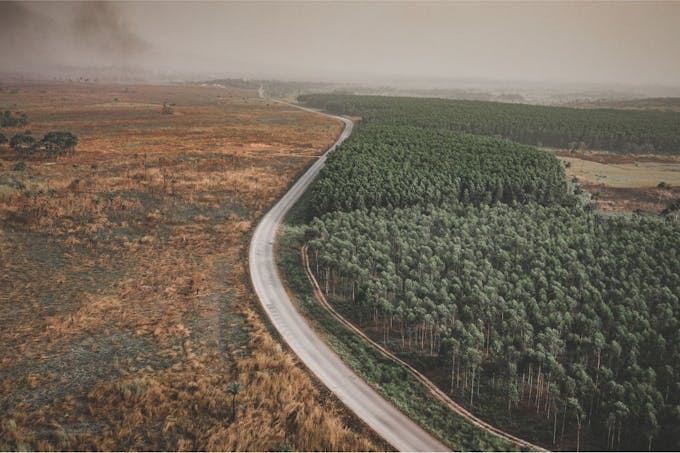Introduction to FLAG
The Forest, Land, and Agriculture (FLAG) initiative is a vital part of the EU's climate strategy aimed at reducing emissions from land use, agriculture, and forestry while promoting carbon sequestration. These sectors contribute significantly to greenhouse gas emissions, particularly through deforestation, methane emissions from livestock, and inefficient farming practices. FLAG offers both challenges and opportunities for companies to align with the EU’s ambitious carbon neutrality goals by 2050.
Land use and agriculture have long been difficult to regulate due to their complex interactions with ecosystems and food production systems. However, they are also seen as vital components of the solution, with a focus on turning these sectors into net carbon sinks through sustainable practices. Businesses involved in agriculture, forestry, and land management need to adopt climate-smart practices and carbon tracking systems to meet the EU’s stringent sustainability requirements.
To help businesses tackle these complex issues, Carbmee offers advanced solutions designed to reduce emissions from land-based activities. Carbmee’s tools for supply chain emissions tracking, sustainable land management, and carbon sequestration monitoring allow businesses to track and report their environmental impact in real-time, ensuring compliance with FLAG and related regulations. Learn how Carbmee can help you reduce emissions from FLAG sectors.
Key Challenges in FLAG Compliance
Reducing Agricultural Emissions:
Agriculture is responsible for a significant portion of methane emissions, especially from livestock and rice production. Methane is a potent greenhouse gas, and the EU’s FLAG initiative includes specific guidelines to reduce these emissions through improved agricultural techniques and technologies. Carbmee’s Emission Intelligence Solution (EIS) can help companies track methane emissions, optimize farming practices, and adopt climate-smart agriculture.
Deforestation and Forest Degradation:
Deforestation, often driven by agricultural expansion, is a major source of carbon emissions. The FLAG initiative places a strong emphasis on reducing deforestation and promoting reforestation as part of a broader carbon sequestration strategy. Carbmee’s solutions can help companies monitor land use changes and ensure compliance with EU deforestation-free supply chain regulations. These tools are vital for businesses involved in forestry, agricultural expansion, or land use planning, ensuring that deforestation is minimized and forests are managed sustainably.
Sustainable Land Management:
FLAG emphasizes sustainable farming practices, such as precision agriculture, reduced fertilizer use, and organic farming. These practices are not only crucial for reducing carbon emissions but also for improving soil health and productivity. Carbmee’s platform provides insights into how companies can reduce their carbon footprint while improving yields through data-driven sustainable land management strategies.
The Role of Carbon Sequestration in FLAG
Carbon sequestration is one of the key components of the FLAG strategy. Forests and soils are natural carbon sinks that can absorb more carbon than they emit when properly managed. FLAG encourages companies to invest in sustainable land management practices that promote carbon sequestration in soils and forests.
Forest Carbon Sequestration:
Forests play a vital role in capturing and storing carbon dioxide from the atmosphere. Carbmee’s tools allow companies to monitor and enhance carbon sequestration in forests through reforestation and improved forest management. This not only helps reduce emissions but also contributes to the EU’s climate goals.
Soil Carbon Sequestration:
Sustainable farming practices, such as cover cropping, no-till farming, and the use of organic fertilizers, can increase the amount of carbon stored in soils. Carbmee’s solutions enable farmers and agricultural businesses to track soil carbon levels, helping them adopt regenerative agriculture practices that support carbon sequestration.
Business Implications of FLAG Compliance
Compliance with FLAG presents both challenges and opportunities for businesses. On the one hand, companies may need to invest in new technologies and practices to meet the EU’s requirements. However, FLAG also offers businesses a way to enhance their sustainability credentials, reduce long-term operational costs, and contribute to global climate goals.
Adopting Sustainable Practices:
Businesses will need to adopt more sustainable practices in agriculture, forestry, and land use to comply with FLAG. This includes reducing methane emissions, preventing deforestation, and enhancing carbon sequestration. Carbmee’s Emission Intelligence Solution provides the necessary tools to make these transitions smoother, offering real-time tracking and optimization of environmental performance.
Supply Chain Transparency:
FLAG also places a significant emphasis on ensuring transparency throughout the supply chain. Businesses must be able to demonstrate that their raw materials, particularly those derived from land use, comply with deforestation-free and low-emission standards. Carbmee’s solutions provide end-to-end visibility into supply chains, enabling businesses to verify the sustainability of their operations and meet EU compliance requirements.
Risk Mitigation and Competitive Advantage:
Businesses that proactively engage with FLAG requirements are likely to gain a competitive advantage in the market. With increasing pressure from consumers, investors, and regulators to demonstrate sustainability, FLAG compliance can enhance a company’s reputation and market positioning. Carbmee’s tools not only ensure compliance but also help companies mitigate risks related to regulatory non-compliance, financial penalties, and reputational damage.
The Role of Carbmee in FLAG Compliance
Carbmee’s suite of tools is designed to help businesses meet the stringent requirements of FLAG and other EU climate regulations. With Carbmee’s data-driven solutions, businesses can:
- Monitor and report emissions from land-based activities, ensuring full compliance with FLAG and related policies.
- Track carbon sequestration efforts in forests and soils, optimizing practices for greater carbon capture.
- Enhance supply chain transparency, ensuring that all materials are sourced sustainably and meet EU deforestation-free standards.
- Implement sustainable land management practices that reduce emissions, improve soil health, and increase agricultural productivity.
By integrating Carbmee’s solutions into their operations, businesses can reduce their environmental impact, achieve regulatory compliance, and position themselves as leaders in the transition to a sustainable economy. Discover how Carbmee can help your business with FLAG compliance.
The FLAG initiative is a critical component of the EU’s broader climate strategy, targeting emissions from agriculture, forestry, and land use while promoting carbon sequestration. Compliance with FLAG is essential for businesses that operate in these sectors, and Carbmee offers the tools and expertise needed to meet these challenges head-on. By adopting sustainable practices, reducing emissions, and enhancing supply chain transparency, businesses can ensure they remain compliant with FLAG while contributing to the global effort to combat climate change. Learn more about carbmee EIS™ Carbon Management Solution.
To gain a complete understanding of EU climate regulations and explore how your business can achieve compliance, visit our Comprehensive Guide to EU Climate Regulations.
![[object Object]](https://images.prismic.io/carbmee/ZyS7_K8jQArT0HXq_FLAG-Forest%2CLand%2CandAgriculture-%E2%80%93TacklingLand-BasedEmissions-2-.png?auto=format,compress)



